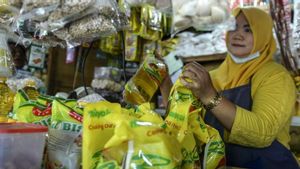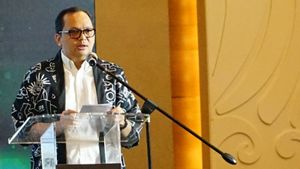JAKARTA - Andalas University epidemiologist, Defriman Djafri, said Infodemik (pandemic information) about COVID-19 is still a challenge after two years of the COVID-19 pandemic in efforts to control COVID-19 in the country.
"Another challenge is that we are faced with the problem of improper infodemik received by the community, this also damages the order in control efforts, not only health protocols, vaccines, and so on", Defriman said in Jakarta on Wednesday, March 2.
Infodemik makes the public distrust the pandemic and ultimately does not believe in the government's efforts in dealing with COVID-19.
Infodemik can influence the judgment and thinking of citizens that whatever the government does is considered wrong. The worry is that people believe it more, and it becomes a conspiracy rather than the right conditions according to the scientific context.
VOIR éGALEMENT:
Therefore, according to him, the government needs to continue to improve the provision of the correct information and educate the public regarding the current conditions of handling and controlling COVID-19, and build public trust in the government.
Previously, Lecturer of the Faculty of Medicine, Universitas Gadjah Mada dr Yodi Mahendradhata said hoax news, disinformation, misinformation, pseudoscience, and conspiracy theories were still obstacles to the future in pandemic control.
Such infodemik causes difficulty in implementing pandemic control efforts including in the case of the COVID-19 pandemic, because the community can be affected, and become distrustful.
"Because our efforts are faced with understandings based on disinformation, misinformation, pseudoscience, people can sort out which ones are actually true", Yodi said in a virtual discussion in Jakarta, last February.
The English, Chinese, Japanese, Arabic, and French versions are automatically generated by the AI. So there may still be inaccuracies in translating, please always see Indonesian as our main language. (system supported by DigitalSiber.id)












